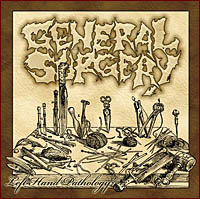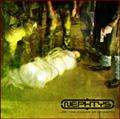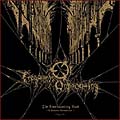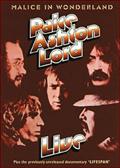GENERAL SURGERY (se) - Left Hand Pathology (2006)

Label : Listenable Records / Pias
Sortie du Scud : 29 mai 2006
Pays : Suède
Genre : Grindcore
Type : Album
Playtime : 14 Titres - 34 Mins
GENERAL SURGERY a été fondé en 1988 en Suède par un ex-membre de DISMEMBER (Matti Karki / basse) et par Grant Mc Williams (voix) dans le but de célébrer le culte de leur groupe favori : CARCASS.
Ils eurent à leur actif plusieurs démos dont l’EP qui les fit connaître Necrology en 1991, exalté par la critique. Cependant, ils se séparèrent la même année pour se reformer que dix ans plus tard et pour signer encore et encore des démos. Ce n’est que cette année que le quintet Suédois guidé par G.Mc Williams aura la bonne idée de sortir son premier vrai album studio avec ce Left Hand Pathology, un évident hommage à l’encontre de ENTOMBED et de leur album culte, Left Hand Path.
Cœurs sensibles s’abstenir ! GENERAL SURGERY rouvre sa morgue pour présenter le premier album de leur discographie. Marchant sur les traces des génies Britanniques CARCASS, les Suédois reprennent donc le flambeau pour continuer l’œuvre médico-musico légale de la bande à Jeff Walker et Ken Owen. A l’instar de CARCASS, les membres de GENERAL SURGERY se déclarent prêts à nous pratiquer des petites opérations et autres retouches anatomiques à travers les quatorze titres présents sur cette rondelle de Grindcore. D’entrée de jeu, la bande à Mc Williams place la barre très haute avec le titre « If These Walls Could Talk » ; des morceaux de viande avariée telle que la redoutable « Ambulance Chaser » ou la pulsative « Arterial Spray Obsession » montre que l’on a indubitablement affaire à un garant du Grindcore comme il se doit. Riffs de tueurs aux harmonies imparables, percussions et blasts beats incontrôlables, la machine de guerre est bien huilée pour nous prouver que presque dix ans d’existence ont abouti à un résultat probant. Une dose de Rock groovy habite également certaines pistes (Fulguration) ou la néo carcassienne « The League of Extraordinary Grave Robbers ».
Mais bien souvent dans ce genre d’exercice, la myriade de titres (quatorze pour une demi-heure de folie) rend l’album trop exhaustif et exténuant à la fin. La force des Anglais était qu’ils savaient créer des mélodies mémorables malgré le caractère extrême de leur musique. GENERAL SURGERY en est capable mais que sur le court terme et préfère adopter l’attitude du tout dans la vitesse d’exécution. Trop homogène, l’impression d’écouter le même titre devient trop redondante (un ventre mou semblable à un vide spatio-temporel), du coup, on aurait aimé entendre plus de titres comme « Convivial Corpse Disposal Methodology », ainsi des morceaux avec des idées rythmiques tels que « Mortuary Wars ».
Quoi qu’il en soit, GENERAL SURGERY a trouvé son propre son et est capable de créer de bons morceaux de Grind. Peut-être pourront-ils juste nous produire un prochain album regorgeant que de compositions de qualité ? Laissons-leur le bénéfice du doute…
Ajouté : Mardi 25 Juillet 2006
Chroniqueur : Loki
Score :   
Lien en relation: General Surgery Website
Hits: 21907
|














